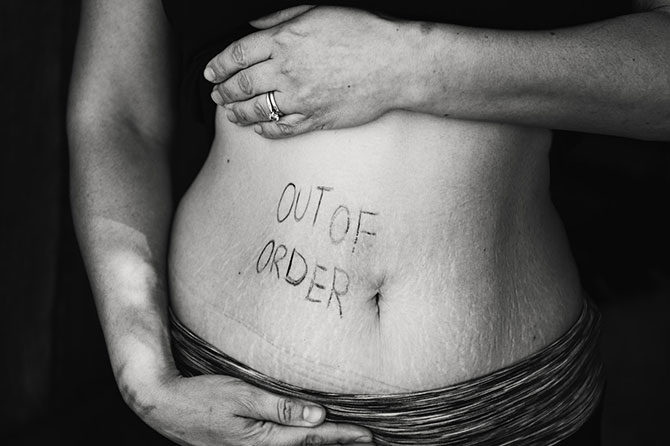
Living with Irritable Bowel Syndrome
Dr Yanna Ko
Irritable bowel syndrome (IBS) is a chronic condition which often requires personalised treatment plans for each patient. It is very common – about one in nine Australians have IBS. Lifestyle factors, stress, genetic and dietary aspects are just some of the factors proposed to contribute to IBS development.
What are the symptoms of IBS?
Chronic abdominal pain or discomfort along with frequent changes to your bowel habits are characteristic of IBS. It can be accompanied by bloating, constipation, urgency (a sudden strong urge to open your bowels) and the feeling of incomplete emptying after a bowel motion.
How do you diagnose IBS?
It is important to consult your general practitioner for a review of your symptoms and physical examination. Your doctor might request blood and stool testing to exclude other conditions that can mimic IBS symptoms. Sometimes, a colonoscopy may be suggested by your doctor. The diagnosis of IBS is considered when there is a corresponding symptom history and they are no obvious abnormalities found from your tests. However, it is important to consider other criteria (such as the ROME IV criteria) in the diagnosis of IBS and to differentiate it from similar functional gut disorders.
How do you treat IBS?
Everyone has different triggers for their IBS, and the correct management of IBS depends on identifying the cause of IBS for each patient, and tailoring therapy to the specific type of IBS you have.
A common approach to IBS treatment is dietary adjustment, where problematic food groups are eliminated to reduce symptoms. One example is a low-FODMAP diet, a specialised diet aimed at eliminating then slowly reintroducing short-chained carbohydrates in your diet to address symptoms of pain and bloating. For some patients, increasing fibre might improve constipation.
There are simple medications to improve IBS symptoms, such as over the counter laxatives and anti-diarrhoeal medications. It is important to clarify side effects with your doctor, as some medications can worsen IBS symptoms such as bloating. There is also a group of medications more commonly used for their antidepressant effects but at the right doses can also improve global IBS symptoms.
There is an important association called the gut-brain axis where stress can worsen bowel symptoms. Gut hypnotherapy is one of the treatments for IBS. It is also common for psychiatric disorders or other functional disorders to coexist with IBS, and thus the approach to treatment must take into account whole wellbeing of the patient and address any interacting conditions.
There is a lot of research in IBS treatments, such as the role of the gut microbiome and different dietary approaches. If you need to speak to an IBS specialist about IBS or you are interested in being involved in research studies feel free to contact us.
FAQs
What is Irritable Bowel Syndrome (IBS)?
IBS is a disorder that affects the large intestine (colon). It can cause symptoms such as abdominal pain, bloating, and changes in bowel movements (diarrhoea, constipation, or a mix of both).
What causes IBS?
The exact cause of IBS is unknown, but it is thought to be related to a combination of factors such as abnormal muscle contractions in the colon, sensitivity to certain foods, stress, and hormonal changes.
How is IBS diagnosed?
IBS is typically diagnosed based on the presence of certain symptoms and a physical examination. Your IBS specialist may also order tests such as a blood test, stool sample test, or imaging tests to rule out other conditions.
Can IBS be cured?
There is no cure for IBS, but the symptoms can be managed with a combination of lifestyle changes and medications. There are several options for IBS treatment, Australia has experienced specialists such as the team at Sydney Gastro Specialists.
How can I manage my IBS symptoms?
Some ways to manage IBS symptoms include following a healthy diet, reducing stress, getting regular exercise, and taking medications as prescribed by an irritable bowel syndrome specialist. It may also be helpful to keep a diary of your symptoms to identify triggers that may worsen your IBS.
Can IBS affect my mental health?
Yes, IBS can have a significant impact on a person’s mental health, as the chronic nature of the condition and the associated symptoms can cause feelings of distress and anxiety. It is common to experience IBS and depression at the same time. It is important to address any mental health concerns with a healthcare provider.
Is it normal to have flare-ups of IBS symptoms?
Yes, it is common for people with IBS to experience flare-ups, during which their symptoms may worsen. Flare-ups can be triggered by a variety of factors such as diet, stress, and hormonal changes.
Can IBS cause long-term complications?
In most cases, IBS does not cause long-term complications. However, it is important to manage the condition and seek medical treatment if necessary to prevent the worsening of symptoms and to improve quality of life. If you are concerned, contact an IBS specialist – Sydney Gastro Specialists has an experienced and friendly team who can assist you in managing this condition.
Leave a reply